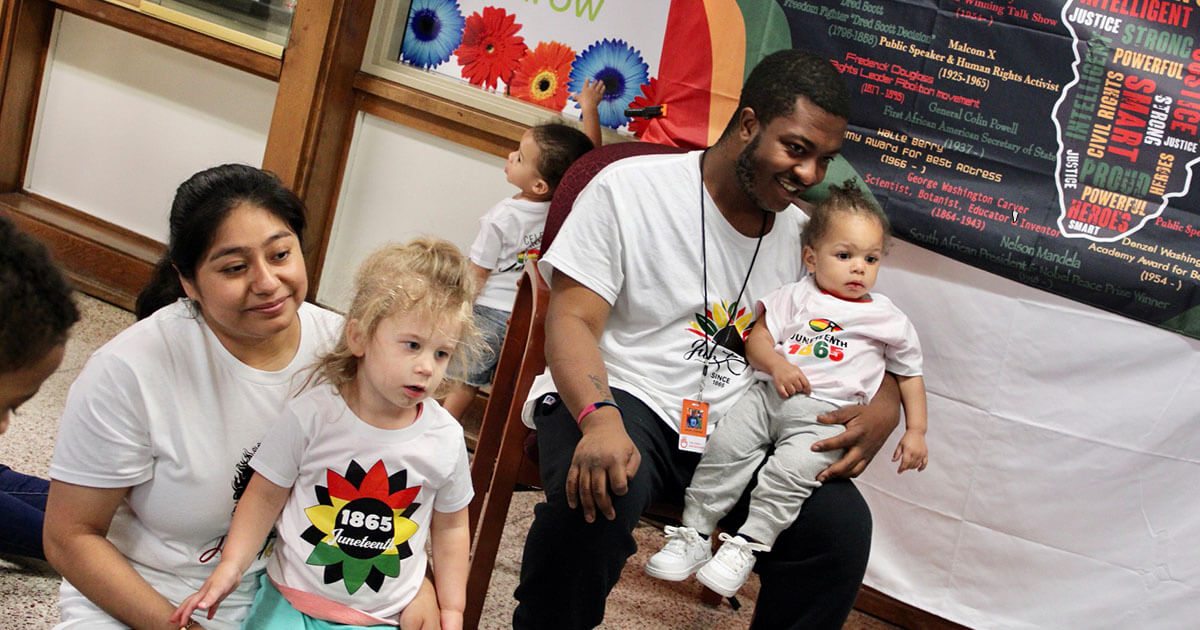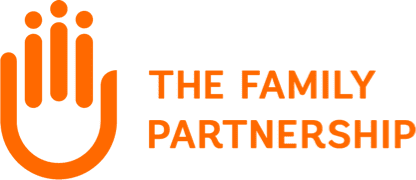7 New Minnesota Laws That Early Childhood Education Professionals Should Know About

For President and CEO Dianne Haulcy, the Minnesota State Legislature’s 2023 spring session marked a breakthrough for the Early Childhood Education (ECE) and care. “In over 30 years of work have never seen anything like it,” Haulcy said. “In fact, it’s getting national attention–especially in states focused on reducing child poverty and helping children, youth, and families.”
In over 30 years of work have never seen anything like it. In fact, it’s getting national attention–especially in states focused on reducing child poverty and helping children, youth, and families.”
Dianne Haulcy
Investments include $559.13 million in the coming fiscal year to address longstanding ECE workforce shortages in Minnesota that worsened during the COVID-19 pandemic. One of the silver linings of the pandemic is that we all experienced in real time the importance of having a solid early childhood care and education system to support our workforce. Therefore, thanks to increased funding, ECE workers and students will find improved access to education, professional development, and compensation as early as this summer.
If you’re an ECE professional, student, or considering a profession in the field, check out seven highlights from the spring session that you should know about.
1. The Great Start Compensation Support Payments program will improve ECE worker wages
$316.1 million for FY24-25, $259.7 million for 2026-27
The Minnesota state legislature established the Great Start Compensation Support program in May 2023 to provide permanent increased monthly compensation and benefits for ECE workers. According to Child Care Aware of Minnesota, the program builds off two 2021 grant programs, The American Rescue Plan Act and Minnesota’s Child Care Stabilization Program.
According to Minnesota’s Children’s Cabinet, this program “will help recruit and retain child care workers, improve child care access for families across the state and support the broader workforce and economy.” This support is essential to the early childhood workforce. Without this support, Lead Teachers in the Twin Cities Metro Area make a median salary of just $29,786 while Assistant Teachers earn a median salary of $27,169–significantly less than the $37,536 cost of living for a single person household.
To aid in the transition, the Minnesota Department of Human Services is offering transition grants to eligible providers. For more information on eligibility, deadlines, and allowable uses of funds for Great Start Compensation Support Transition Grants, visit the DHS webpage. Note that transition grant applications for August are due August 22, 2023, and for September by September 22, 2023.
- Empower to Educate
- Child Care Aware MN
- The workforce development grant (Empower to Educate) to support economically challenged individuals to being a career in child care ($1.995 million per year) beginning in 2025
2. The Early Education Wage Scale will provide early childhood workers with compensation that equals elementary school educators
$1 million wage scale development, $68k cost estimation model of care
In May 2023, the Minnesota Department of Human Services received funding to create a cost estimation model of care for early childhood programs. DHS will use this new cost estimation model to set provider rates for the Child Care Assistance Program (CCAP) that equal elementary school educators. According to Minnesota’s Children’s Cabinet, this law will also develop a “process for recognizing competencies achieved through training and experience that are comparable to degrees and credentials.”
What does this mean for early childhood professionals? Your education and experience will more easily support a higher rate of compensation and benefits. Whether you achieve a degree in early childhood education, participate in an apprenticeship program, or engage in hours of training on the job, you’ll be building toward a stronger salary.
This law benefits early childhood professionals as well as families, because it incentivizes an experienced early childhood workforce. For more information on wage scale recommendations, check out the Great Start for All Minnesota Children Task Force Report.
3. Grow Your Own will raise up early childhood educators who represent the children in their classrooms
$2.5 Million FY24-25, $1 Million ongoing
The 2023 Spring state legislative session expanded funding for Grow Your Own (GYO) to the early childhood field. Prior to this, GYO programs in Minnesota focused on recruitment of K-12 teachers to ease “local teacher shortages and…increase racial and linguistic diversity of the teacher workforce.” This funding provides Grow Your Own funding for building and expansion of programs that help individuals attain a Child Development Associate degree, Associate’s or Bachelor’s in early childhood, family education, or early childhood licensures.
If you plan to pursue a higher education degree in early childhood, keep your eyes on the GYO grant program. You may qualify for grant funding to pay for stipends, tuition scholarships, or student teaching. When more information becomes available, we’ll be sure to share it with you.
4. Increased funding for REETAIN expands access to bonuses for early career ECE professionals
$4.28 Million FY24-25, $900k per year ongoing
Minnesota legislators have approved an increase in funding for the Retaining Early Educators Through Attaining Incentives Now (REETAIN) program. According to Child Care Aware of Minnesota, REETAIN provides bonuses that “help supplement income for early childhood educators as they work to establish a career in the field.” Early childhood educators working in centers and family settings may qualify, and can be used for both professional and personal expenses.
For more information on eligibility and the application process, visit Child Care Aware of Minnesota’s REETAIN page.
5. T.E.A.C.H. provides scholarships for college credits and degrees in early childhood
$695,000 per year
Child Care Aware MN established T.E.A.C.H. Early Childhood® Minnesota scholarships in 2002 to for early childhood educators to “increase their levels of education, compensation, and commitment to the field by earning college credits and degrees.” For qualified applicants, T.E.A.C.H. Scholarships can fund several parts of your education:
In 2023, Minnesota state legislators voted to continue funding for T.E.A.C.H. If you’re a family or center care provider, you may be eligible for a scholarship that covers costs for education. If you receive a scholarship, you’ll be asked to commit to at least a year of work at your place of employment after the scholarship ends.
According to Child Care Aware of Minnesota, scholarships will fund “college credit or an associate or bachelor’s degree in Child Development or Early Childhood Education at an accredited Minnesota college or university.” You might also be eligible if you’re part of Empower to Educate, earning fewer credits, or completing your CDA trainings at an approved institution.
You can use T.E.A.C.H. scholarships to pay for:
- 85% of tuition and book costs for college credit, up to 18 credits
- Travel stipends and release time
- Raises or bonuses after completing nine or more credits
For more information on the scholarship, including eligibility and the application process, visit Child Care Aware of Minnesota’s T.E.A.C.H. page.
6. Early Childhood Registered Apprenticeship Grant Program will provide on-the-job training and mentoring opportunities
$3.2 million in FY24-25, $2 million ongoing
The May 2023 Minnesota state legislative session also gave funding to the Minnesota Department of Human Services to establish an early childhood apprenticeship program. Qualified apprentices can receive a higher education scholarship of up to $10,000, with the following provisions:
- You’re enrolled in a registered apprenticeship program
- You are a current participant in good standing in the T.E.A.C.H. scholarship program
- You participate in meetings and on-the-job learning with a mentor
- You work toward meeting early childhood competencies
- You work toward the attainment of a higher education degree in early childhood
Are you already an early childhood provider? You’ll want to keep your eyes on this program. The apprenticeship grant also offers mentors stipends of up to $4,000 per mentor. Mentors can qualify for this stipend after eight weeks of training and additional training on observation.
While the early childhood apprenticeship program has yet to be established, in the future you can find information using Minnesota State’s Education search tool. This tool gives you the optino to find registered apprenticeships based on campus, program, or course.
For current apprenticeship opportunities through T.E.A.C.H. check out Child Care Aware of Minnesota’s T.E.A.C.H. apprenticeship program page.
7. Child Care Wayfinder received ongoing funds to help child care providers to start and sustain programs
$2.92 million per year
If you want to start your own child care program or currently operate one, we have good news to share about Child Care Wayfinder. Wayfinder was launched in 2022 as a “one-stop navigation network” helping providers to start and sustain their programs. The program just received funding from state legislators in spring 2023 to continue.
According to Child Care Aware of Minnesota, Wayfinder prioritizes communities facing the greatest disparities in access. The program reduces disparities by addressing some of the greatest barriers to outreach, recruitment, and navigation services including how to:
- Start a family child care or center child care program
- Increase license capacity
- Open more locations
- Make a business plan
- Attend licensing information sessions
- Apply for a license
- Get a Parent Aware Rating
- Other resources
Through Wayfinder, you can reach out to a local navigator for “encouragement, support, and connection.” To find your local navigator, visit Child Care Wayfinder’s contact us page or call 888-986-8207.
Investment in early childhood professionals leads to greater equity and prosperity in Minnesota.
Minnesota’s 2023 spring legislative session has made national headlines for its investment in early childhood education. By investing in the early childhood workforce, our state is becoming one of the best places for early childhood professionals to work and live.
ECE professionals do some of the most important work in our communities. They provide enriching environments for our state’s youngest learners and prepare them to be successful in school, work, and life. The U.S. Department of Education reports that “a robust body of research shows that children who participate in high-quality preschool programs have better health, social-emotional, and cognitive outcomes than those who do not participate.” The influence of early childhood educators and caregivers is lifelong!
Qualified early childhood professionals also play an important role in racial and economic justice across Minnesota. The Minnesota Department of Health reports disparities in access to early childhood education—and its benefits—for Black, Indigenous, and children of color as well as children from low-income households.
By expanding access to education, training, salaries and other resources for early childhood professionals, Minnesota is on track to support an experienced and diverse workforce that can offer quality and culturally responsive early childhood programs in Minnesota.
“The return on investment from early childhood development is extraordinary, resulting in better working public schools, more educated workers and less crime.”
Arthur J. Rolnick
Even more, early childhood workers support a prosperous economy in Minnesota. The Family Partnership’s new board member, Arthur J. Rolnick, senior fellow at the Humphrey School of Public Affairs at the University of Minnesota, explains the financial benefit of a more stable early childhood workforce. Rolnick says, “The return on investment from early childhood development is extraordinary, resulting in better working public schools, more educated workers and less crime.” By supporting the important work of ECE professionals, children, families, and communities in Minnesota will thrive.
The Family Partnership is currently hiring Lead Teachers and Teacher’s Aides at our North Minneapolis Preschool and South Minneapolis preschool, Four Directions. For more information on career opportunities in early childhood with us, visit our careers page.
